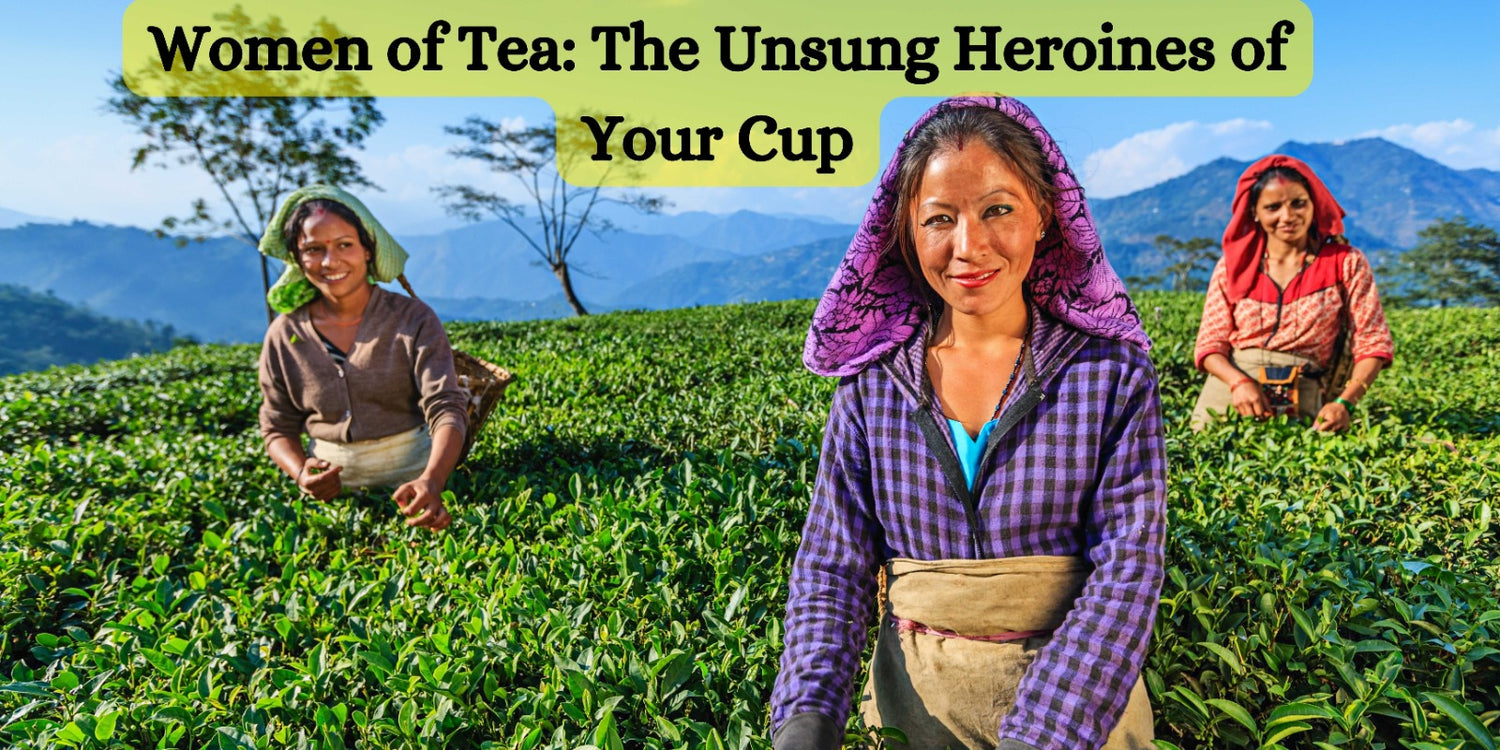Tea, a beverage that has woven its way through the tapestry of human history, has been shaped and nurtured by countless individuals. Among these individuals, women have played a particularly significant role in the cultivation, preparation, and preservation of tea culture. In this blog post, we'll explore the multifaceted contributions of women to the world of tea, celebrating their influence and impact across different cultures and time periods.
Historical Roots: Women and Tea
Cultivation and Harvesting
In many tea-producing regions, women have been the backbone of tea cultivation and harvesting. The careful selection and harvesting of the tea leaves by experienced hands are essential for maintaining the superior quality of the final product. Whether it's the terraced fields of China, the misty hills of Darjeeling, or the lush estates of Kenya, women have been instrumental in the labor-intensive process of tea leaf plucking and processing.
Tea Preparation and Traditions
In various cultures, women have been the custodians of tea preparation and traditional rituals. From the Japanese tea ceremony, where the hostess meticulously prepares and serves matcha to guests, to the Indian chaiwallis who skillfully brew spiced chai on the streets, women have been entrusted with the art of creating and sharing tea experiences. Their knowledge and expertise have been passed down through generations, enriching the tapestry of tea culture.
Modern Influence: Women in Tea Today
Entrepreneurship and Tea Trade
In recent years, women have increasingly stepped into leadership roles in the tea industry. Whether as tea estate owners, tea sommeliers, or tea shop proprietors, women have been making significant strides in shaping the contemporary tea landscape. Their entrepreneurial spirit and dedication to quality have led to the establishment of successful tea businesses and the introduction of innovative tea blends and products.
Advocacy and Empowerment
Beyond the realms of tea production and trade, women have been at the forefront of advocating for fair labor practices and social empowerment in the tea industry. Through initiatives focused on women's health, education, and economic independence, organizations and individuals have been working to uplift women in tea-growing communities, ensuring they have the resources and support they need to thrive.
Celebrating Diversity: Women in Global Tea Cultures
Japan: The Tea Ceremony and Artistry
In Japan, women have been historically central to the practice of the traditional tea ceremony, or chanoyu. This highly choreographed ritual, rooted in Zen Buddhism, emphasizes harmony, respect, purity, and tranquility. Women, known as "teishu" or "teishu-san," have been instrumental in upholding the artistry and grace of the tea ceremony, perpetuating its timeless traditions.
India: Chaiwallis and Community
The chaiwalli, a female tea vendor, is a cornerstone of Indian culture. Her presence is deeply embedded in the everyday routines of countless people. These resilient women can be found on street corners and bustling markets, skillfully brewing and serving chai to locals and visitors. Their warmth and dedication to their craft have made them integral to fostering a sense of community and connection through tea.
China: The Legacy of Tea Masters
In China, women have been revered as tea masters, possessing an intimate understanding of the nuances of tea and its preparation. Through the ages, they have honed their skills in the art of Gong Fu Cha, a traditional Chinese tea ceremony that requires precision and grace. Their mastery of the ceremony and their ability to elevate the tea experience have made them indispensable to the rich tapestry of Chinese tea culture.
Empowerment and Progress: Women Pioneers in the Tea Industry
Michiko Nishide: The Art of Japanese Tea
Michiko Nishide, a celebrated Japanese tea master, has devoted her life to preserving and promoting the art of the Japanese tea ceremony. Her dedication to teaching and sharing the principles of chanoyu has earned her recognition as a cultural ambassador, inspiring countless individuals to appreciate the beauty and tranquility of the tea ceremony.
Rabecca Chalo: Empowerment Through Tea Farming
Rabecca Chalo, a tea farmer from Kenya, has broken barriers in a traditionally male-dominated industry. As the founder of the Rabecca Chalo Foundation, she has been a champion of women's empowerment, supporting education and economic opportunities for women in tea-producing communities. Her efforts have ignited a movement of change and progress in the region.
Looking Forward: Honoring the Legacy of Women in Tea
As we celebrate the pivotal role of women in tea culture, it's essential to recognize their contributions and advocate for their continued empowerment and recognition. By honoring the legacy of women in tea and amplifying their voices, we can ensure that their wisdom, artistry, and resilience continue to shape the vibrant world of tea for generations to come.




